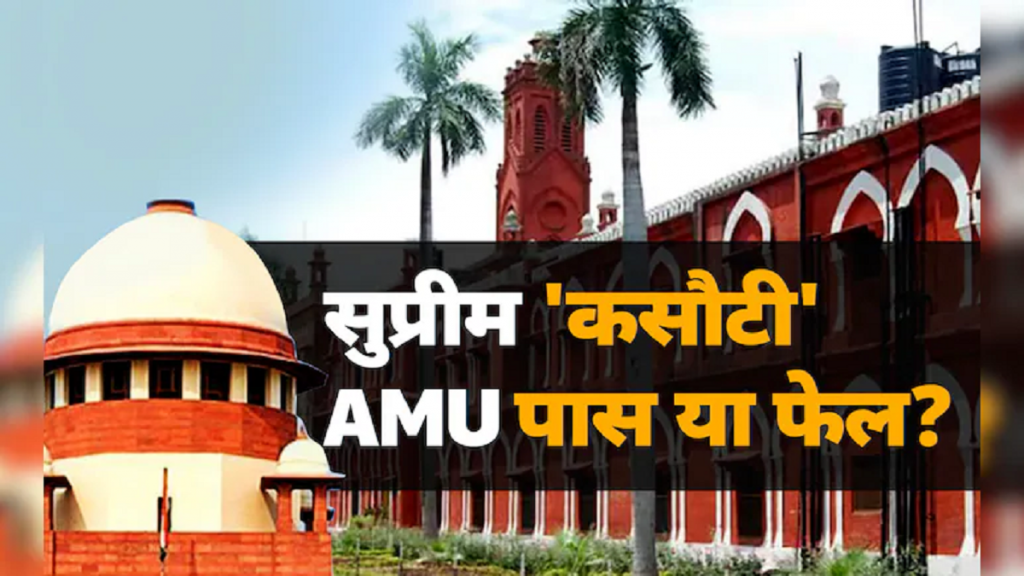The Supreme Court has made a ‘criteria’ of criteria for minority status in institutions like Aligarh Muslim University (AMU). In the coming days, any institution will be tested on this criterion for minority status. A bench of three judges of the Supreme Court will give this criterion the form of guidelines and then the institutions will be tested on it. On Friday, the Supreme Court abolished the decision of Aziz Basha vs the Government of India of 1967, which said that the institution will get minority status only if it is established by the people of that community. Now the question is whether Aligarh Muslim University will meet the Supreme Court‘s criterion for minority status. After all, what are the criteria set by the Supreme Court on Friday, understand here.
After all, why is there a fight for minority status?
The effect of this decision will be that if the Supreme Court believes that AMU will not have minority status, then SC/ST and OBC quota will be applicable in it also.
Why is AMU happy?
According to Saadan Farasat, the lawyer fighting the case on behalf of AMU, the Supreme Court’s initiative is a relief. He says, ‘According to me, the criteria that have come up are appropriate for Aligarh Muslim University. Whether it is about the formation of the university or about giving land and donations for it, when the three-judge bench of the Supreme Court gives its final opinion on minority institutions, then this thing will be proved. AMU will completely meet this and its minority status will remain intact. Our case is very positive.’
The minority status of Aligarh Muslim University will remain intact for now, another bench of SC will hear the case
Farasat also highlighted the decision of S Aziz Basha and others vs Union of India dated 20 October 1967. The Supreme Court overturned it on Friday. According to him, Aziz Basha said that the British government had established AMU by enacting an act in 1920. Since AMU was established by the British government, it cannot be considered an institution established by the Muslim minority. The Supreme Court has completely overturned that decision. The Supreme Court said that any minority community can establish an institution and the government’s help can be taken for its legal validity. This does not mean that the institution has not been established by that minority community. This is the biggest thing about today’s decision of the Supreme Court. On this precedent, the Supreme Court overturned the Aziz Basha case of 1967.
‘AMU will stand the test of the Supreme Court’
When a three-member bench of the Supreme Court will test the institutions on the criteria of a seven-judge bench, will AMU pass it? Faizan is completely confident about this.
After all, what are the criteria of the Supreme Court?
The subtle point that the 7-judge bench of the Supreme Court has made in its decision is that the intention behind the formation of minority institutions will also be looked into. Farasat says that according to the Supreme Court, which community has established it to promote itself? Which community’s money was invested in it? Who were the people involved in it? What was the initial discussion at the time of setting up the institution? Who was it for? All this will be looked into. If the history of AMU is looked into, it will become absolutely clear that it was established to promote Muslim minorities.

